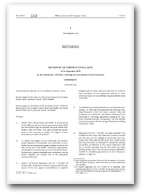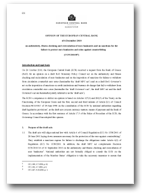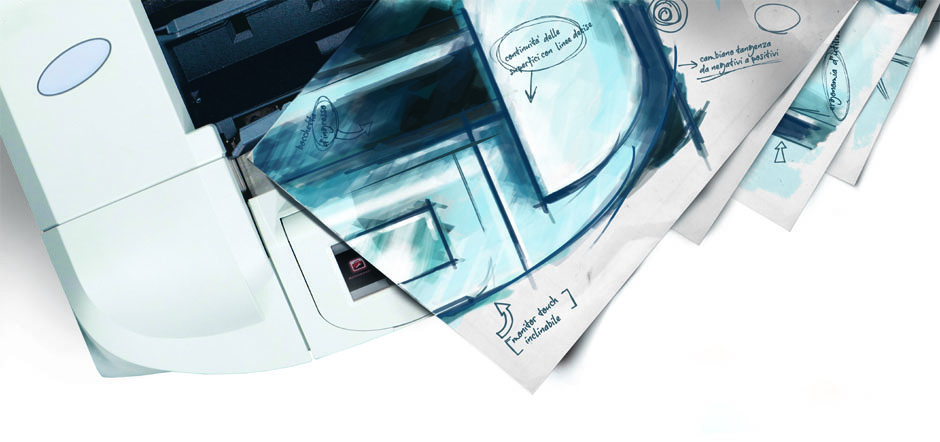EU Official Journal
On January 1st 2011 became applicable the European Central Bank’s Governing Council decision adopted on September 16th 2010. It is the ECB/2010/14 on the authenticity, fitness checking and recirculation of euro banknotes. The relevant document is available in this official EU Journal:

Cash Recycling in Next Generation Retail Banking
Retail Banking OpEx Savings by Introducing TCR Technology
The ECB’s directive on cash authentication, fitness and recycling triggers the retail banks interest to revisit their cash management model aiming to minimize costs.
Cost elements such as among other the teller labor cost, outsourced services for Cash–In–Transit, Fitness and Sorting and ATM’s cash replenishment may be sliced or marginally eliminated by migrating from the traditional unassisted teller into a new teller paradigm supported by Teller Cash Recycling assistant machines.
A bank project targeted in TCR’s technology deployment across branches may result in a significant net present value for the bank, along the equipment lifecycle, with CapEx investment Internal Rate of Return being equally attractive, challenging other corporate portfolio investment initiatives.
There is certainly an operating cost reflected in a given Retail Banking Unit structure and operating model. Next to the introduction of TCR’s technology across the branches network, this cost is significantly reduced. This saving in OpEx is a key determining factor in bank’s management decision to plan and deploy such a project.
CubeIQ, the last few years, has been actively involved in developing operational and financial models of retail banking cash management. Relevant material is presented in this site section titled "ROI Calculator".
Bank of Greece, MPC
On October 26th 2010, the European Central Bank (ECB) received a request from the Bank of Greece (BoG) for an opinion on a draft BoG Monetary Policy Council act on the authenticity and fitness checking and recirculation of euro banknotes and on the imposition of sanctions for failure to withdraw from circulation counterfeit euro notes.
ECB’s Governing Council adopted an opinion on December 6th 2010, emphasizing and reconfirming that cash handlers not checking euro banknotes for authenticity and fitness will not be allowed to recirculate these banknotes and may only put in circulation euro banknotes that they have received either directly from an NCB or from another cash handler, such as a credit institution or a cash–in–transit company, that has checked the euro banknotes for authenticity and fitness according to the procedures laid down in Decision ECB/2010/14. The relevant document is available in this ECB document:

Why and How Cash Recycling is Realized

Cash Recycling entrusted in specialized ECB-approved machines
The cash cycle can be shortened if banks recirculate ("recycle") banknotes which they receive from their customers. This avoids the transportation of banknotes back to the central bank and their withdrawal again by that bank. ECB established terms of reference for the operation of cash handling machines that can receive, process and dispense banknotes, so called "cash-recycling machines". Only cash-recycling machines which can detect banknote counterfeits and sort banknotes according to their quality should be used by banks and other professional cash handlers.
The terms of reference have meanwhile been extended to all forms of banknote recycling. These machines must be able to detect counterfeit banknotes and to physically separate banknotes which are fit for circulation from those which are not. Only fit banknotes will be disbursed, while unfit banknotes have to be withheld and forwarded to the national central bank. Counterfeits are reported in compliance to the law. On its website, the ECB has published a list of those cash-handling and cash recycling machines which have qualified for banknote recycling. Prior to being admitted to the euro area market, each machine has to pass a standardised test at a National Central Bank showing that it can reliably detect and segregate counterfeits and unfit banknotes. The tests need to be repeated annually to ensure that each machine is sustaining its proper performance.
All banks and other professional cash handlers in the euro area are required to comply with the regulations on banknote recycling.










 YouTube
YouTube